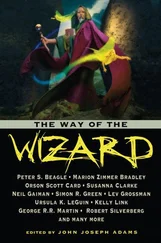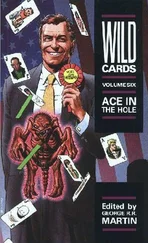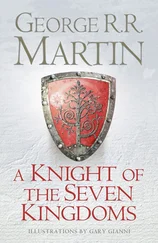He was kneeling at the edge of the starburst, outlining in silver a frieze of intertwined rings of cerulean blue that traced the edge of one arm. The silver, like all the other pigments of the design, was applied as a fine powder tapped gently from the end of a hollow reed. The resident’s forefinger struck the tube three more times as I watched, then he took up a small brush that bore a single bristle at its end, and nudged an errant flake into alignment.
Grolion appeared in the doorway, grumbling and cursing, to proffer the stoppered jar. The resident shooed him back with a flurry of agitated hand motions, lest any of the blood that dripped from his elbows fall upon the pattern, then he rose and came around the tray to receive the container.
“Watch and remember,” he said, taking the jar to a bench and beckoning Grolion to follow. “If I promote you to senior assistant, this task could be yours.”
“Does that mean someone else will climb the barbthorn?”
The resident regarded him from a great height. “A senior assistant’s duties enfold and amplify those of a junior assistant.”
“So it is merely more work.”
“Your perspective requires modification. The proper understanding is that you command more trust and win more esteem.”
“But my days still consist of ‘Do this,’ and ‘Bring that,’ and nothing to eat but mushrooms from the garden and steagle.”
“The ale is good,” countered the resident. “You must admit that.”
“Somehow it fails to compensate,” said Grolion.
“Pah!” said the resident. “I had hopes for you, but you are no better than the others!”
“What others?”
But the question was waved away. “Enough chatter! Watch and learn.” The resident removed the stopper from the container, inserted two fingers and deftly caught a fragile leg. He drew the fluttering creature out, laid it on a mat of spongewood atop the workbench, then found a scalpel with a tiny half-moon blade. With a precise and practiced stroke, he severed the almiranth’s triangular head from its thorax.
While the wings and legs were still moving in reflexive death throes, the resident donned a mask of fine gauze and bid Grolion do the same. “A loose breath can cost us many scales,” he said, picking up a miniature strigil. Delicately, he stroked the wings, detaching a fine dust of gold and crimson, demonstrating the technique of moving the instrument to the left to pile up a pinch of gold on one side, and to the right to accumulate a minuscule heap of the other hue. When each of the four wings was stripped to the pale underflesh, he produced two hollow reeds, and, using the gentlest of suction through the gauze, drew the pigments from the table.
“There,” he said, “a productive morning. Grolion, you have earned your ale and steagle.”
Grolion did not respond. He had not been attending to the demonstration, his eye having instead been caught by the shelves of librams and grimoires on the opposite wall. One of them was bound in the blue chamois characteristic of Phandaal’s works.
The resident saw the direction of his assistant’s gaze and spoke sharply. “Back to your duties! Already I can see a green-and-orange banded chrysalis on that branch that hangs like a limp hand — there on the left, near the top! I don’t doubt that’s about to provide us with a magnificent nighttorch!”
“I must tend my wounds,” said Grolion. “They may fester.”
“Pah! I have salves and specifics. You can apply them tonight. Now get yourself aloft. If the nighttorch escapes, neither ale nor steagle shall pass your lips.”
“This is a sudden change of attitude,” Grolion said. “But a moment ago, I was being congratulated and promised promotion.”
“I am of a mutable disposition,” said the resident. “Many have tried to change me, but mine is a character that does not yield. You must fit yourself around my little idiosyncracies. Now go.”
The set of his shoulders an unspoken reproach, the assistant went back to the barbthorn. With the resident watching his progress, I thought it ill-judged to follow. But Grolion did not reascend the tree. Instead, as he neared its wide base, where the thick roots delved into the ground, he suddenly stopped then stepped sharply back, as if some dire threat blocked his path.
The resident noticed. “What is it?” he cried.
Grolion did not turn but peered intently at the tangle of roots, as if in mingled fear and fascination. “I do not know,” he said, then bent gingerly forward. “I have never seen the like.”
The resident came forward, but stopped a little behind the traveler. “Where is it?” he said.
A feeler reached out for Grolion. He batted it away and crouched, leaning forward. “It went behind that root, the thick one.”
The resident edged forward. “I see nothing.”
“There!” said Grolion. “It moves!”
The resident was bent double at the waist, his attention fixed downward. “I still don’t—”
Grolion came up from his crouch, moving fast. One blood-smeared hand took the resident by the throat, the other covered his mouth, and both worked in concert to achieve the assistant’s goal, which was to spin the resident around and force his back against the lower reaches of the tree, where the thorns and barbs were thick and long.
Stray tendrils darted at Grolion’s arms, but he ignored the sucking mouths and held the resident fast against the trunk. Now heavier tubers leaned in from the sides, sensing the flesh pressed against the carpet of fine hairs on the tree’s bark. In moments, the man was a prisoner of more than Grolion’s grasp. The assistant took his hands from the resident’s throat and lips, but warned as he did so, “One syllable of a cantrip, and I will stop up your mouth with earth and leave you to the tree.”
“No new spells can be cast here,” the prisoner gasped. “Interplanar weakness creates too great a flux. Results, even of a minor spell, can be surprising.”
“Very well,” said Grolion, “now the tale. All of it.”
The telling took a while. Grolion considerately pulled away creepers and feeders, keeping the resident only loosely held and only slightly drained. I steeled myself to hear the sordid history of the resident’s treachery and the village council’s complicity, though I knew the tale intimately: how they had bridled at my innocent researches, conspiring to usurp my authority, finally using cruel violence against me.
“He was obsessed with the colors of the overworld,” the resident said. “I was his senior assistant, with two others under me. We were just village lads, though quick to learn. He established himself here because, he said, the conditions were unusually propitious — a unique quatrefoliate intersection of planes, a node from which it was possible to reach deep into two adjacent dimensions of the upper world, and one of the infernal.”
A tooth-rimmed sucker, sensing the flavor of his breath, probed for his mouth, but Grolion knocked it aside. The resident spoke on. “He particularly craved to see a color known in the overworld as refulgent ombre. It cannot exist in our milieu; what we call light is but a poor imitation of what reigns there.
“But our village sits on the site of Fallume the Ept’s demesne, long ago in the Seventeenth Aeon. So potent were the forces Fallume employed that he permanently frayed the membranes between the planes. My master’s researches had shown him that, here and here alone, he could create a facsimile of the upper realm and maintain it indefinitely. Within that sphere he could bask in the glow of refulgent ombre and other supernal radiances. To do so would confer upon him benefits he was eager to enjoy.”
The details followed. The microcosm of the overworld sphere would spontaneously self-generate upon completion of a complex design made from unique materials: the pigmented scales of four kinds of butterflies whose larval forms fed only on the sap and leaves of a unique tree, with which the insects lived in symbiosis — predators drawn to consume the insects were led into its maze of branches, where they impaled themselves on barbed thorns and thus became food for the vegetative partner.
Читать дальше











